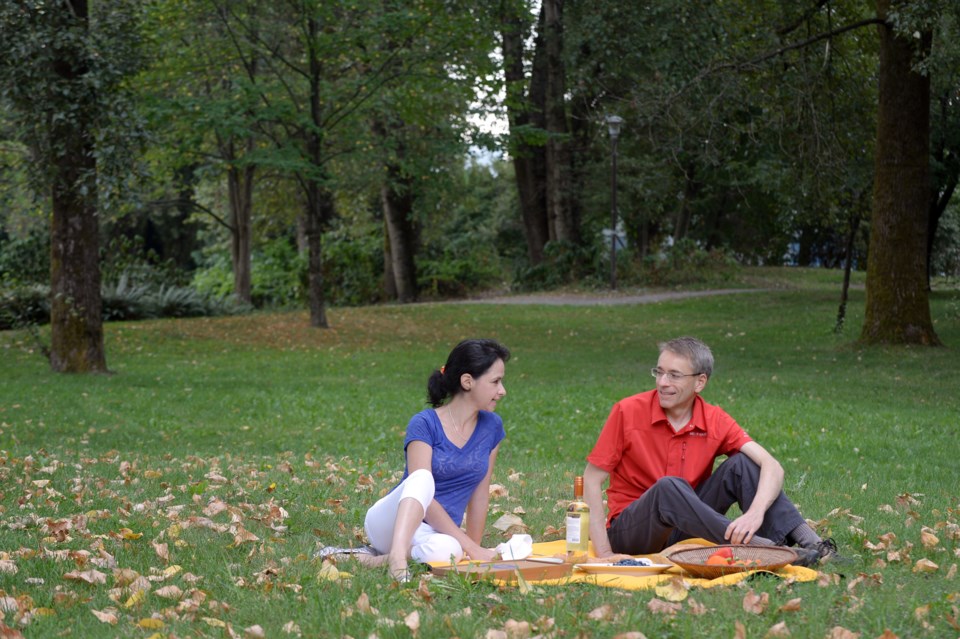To most people, munching on cheese and crackers while chatting about death sounds like a morbid way to soak up the summer, but that’s exactly the response Ross Waddell wants to eliminate.
The taboo subject of death will be served up in Stanley Park for the first time by organizers Waddell and Marylene Kyriazis who created The Centre for Death Education earlier this year. Participants are encouraged to bring their own food to the Prospect Point picnic site in Stanley Park Aug. 25 from 5:30 to 8:30 p.m. Similar to the tradition of storytelling around the campfire, the free event will have guests sharing stories about different aspects of death.
Waddell is co-hosting Death Picnic because he believes the first step to advanced care planning is education. “Before you can start planning for care, you have to have the opening conversation about death and dying,” he said. “From that, you’ll move in to the conversation planning for the kind of care you want when you’re in that phase of life.”
Geri McGrath executive director of non-profit organization Vancouver Hospice Society that provides end of life care, supports the event as a step towards discussing a delicate topic. Through her work, McGrath says the most important piece of information the public needs to hear is to plan their end of life care in advance and be specific with their wishes, which would lighten the load of their caregivers.
The lineup of guests won’t just include those working with the dying. It will also feature a man who grew up in the family funeral business, veterinarians talking about pets passing, scholars and authors discussing the death of empires and ideas, and astrophysicists talking about death of stars.
Gillian Bennett, the B.C. woman who was diagnosed with dementia three years ago and recently killed herself at 84, documents her end of life decision on the website deadatnoon.com.
“We do NOT talk much about how we die. Yet facing death is thoroughly interesting and absorbing and challenging,” wrote Bennett, who also stressed the need for end of life planning.
“Everybody by the age of 50 who is mentally competent should make a Living Will that states how she wants to die, the circumstances under which she does not want to be resuscitated, etc.”
With a confluence of cultures in Vancouver, McGrath says there are many different understandings of death. She says while North American culture has institutionalized birth and death for 20 years, she’s seeing a cultural shift towards seeing it as a natural event.
“In a lot of places in the world, people wake up in the morning being grateful that they’re alive. Often here, we, in North America wake up expecting to have a good day. So it is shocking for us to have to deal with a blow like an end of life diagnosis because it is so far out of the realm of our normal life.”
Jennypeng08@gmail.com
twitter.com/jennypengnow



